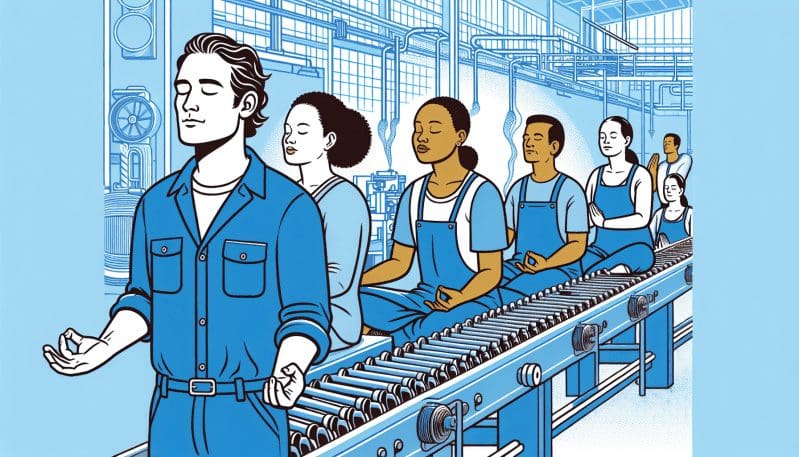In the relentless pursuit of efficiency and productivity, the modern-day workplace has become synonymous with the ‘grind culture’ – a culture that celebrates the ceaseless hustle at the expense of workers’ mental and physical health. This is particularly prevalent amongst blue-collar workers, who often deal with physically demanding tasks and rigid schedules. But beyond the tangible output, lies the hidden costs of mindlessness in the workplace, a topic that demands our attention and action.
The concept of mindfulness – the psychological process of bringing one’s attention to the present moment – may seem like a privilege reserved for white-collar professionals with the luxury of flexible schedules and office wellness programs. However, the implications of ignoring such practices in blue-collar industries are costly and warrant a closer look.
Mindlessness in a work setting, characterized by auto-pilot behaviors and a disconnection from the present, has been linked to increased workplace accidents. In high-risk jobs, a momentary lapse in awareness can lead to serious injury or even fatalities. The stakes are high, and the cost of accidents affects not just the individual worker but the company as a whole through lost productivity, increased insurance premiums, and potential litigation.
Moreover, chronic stress and mental health issues are rampant among workers who operate in a state of continuous distraction or detachment. The repetitive nature of many blue-collar jobs can lead to burnout, anxiety, and depression. These conditions often go unnoticed and untreated, causing a ripple effect of absenteeism, diminished job performance, and high employee turnover rates.
So, what can be done? It’s time to challenge the status quo and introduce mindful practices into the blue-collar workspace. Simple measures like mindfulness training, regular breaks, and creating a culture that encourages workers to speak up about their mental state can have profound effects. Companies investing in these practices are likely to see a decline in accidents, an improvement in mental health, and a reduction in turnover rates.
Mindfulness can also enhance job satisfaction. Workers who feel present and engaged in their tasks are more likely to find meaning in their work and report higher levels of job fulfillment. Moreover, a mindful environment promotes better safety standards, as workers are more attuned to their surroundings and potential hazards.
The implementation of these practices doesn’t have to be a monumental task. It can start with as little as a few minutes of guided meditation before shifts, quiet spaces for breaks, or mindfulness reminders throughout the workday.
Incorporating mindfulness into the labor-intensive world of blue-collar work is not just a nod to modern workplace trends; it’s a necessary shift towards a healthier, more sustainable work environment. It’s time for industries in New York and beyond to recognize the value of their workers’ well-being and set a new standard for what it means to be ‘at work’. By embracing mindfulness, we can collectively ensure that the pursuit of productivity does not come at the cost of the worker’s health and safety.
Let’s not wait for the next report of workplace accidents or for mental health statistics to rise any further. Instead, let’s proactively cultivate mindfulness in our workplaces and watch as the quality of our output, and the quality of our workers’ lives, undergo a transformative shift. It’s a call to be present – for the safety, health, and prosperity of our blue-collar workforce.

























